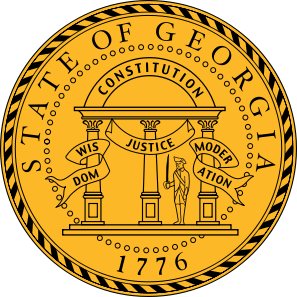
It doesn’t help the state because the cell phone companies keep all the fees. It doesn’t help the cell phone companies because it costs them more to send out the bills and collect the fees than they will collect. And it definitely doesn’t help cash-strapped Georgians who rely on the free government cell phone program.
There is a glimmer of hope, though, because it doesn’t look like the cell phone industry will go down without a fight. An association of cell phone companies has already challenged the new law — even before it can go into effect.
According to Georgia Public Service Commissioner Doug Everett, the new $5 per month fee is expected to reduce fraud in Lifeline program that distributes the free cell phones.
This may be a case of the right hand not knowing what the left hand is doing (Georgia being the left hand and the federal government being the right) because the Federal Communications Commission has already launched an effort to reduce fraud and abuse in the free government cell phone program.
The federal regulator acknowledges that the program is rife with fraud on the part of customers and cell phone providers. Reports indicate that many ineligible consumers participate in the program and many of them somehow manage to rig the system in order to get multiple phones. And some of the free government cell phone providers enforce the program’s rules with adequate zeal. The FCC’s anti-fraud measures are expected to save $2 billion over the next ten years.
According to Everett, the number of Georgians participating in the Lifeline program has skyrocketed in the last ten years — from just 100,000 ten years ago to more than 1,000,000 at its peak. He said there are now approximately 740,000 Lifeline participants in the state.
If the suit brought by the cell phone industry is unsuccessful, the new regulations will require cell phone companies to bill each customer $5 per month. Oddly enough, they admit that the phone companies will keep the monthly fees they collect, but also say the fees won’t cover the cost of sending out the bills.
To that, we say “Bureaucracy at its finest.”
It appears that no one agrees with the Public Service Commission’s concept. The cell phone industry’s lawsuit contends that the state doesn’t have the right to set public utility fees, even if they’re as low as $5.
And Liz Coyle, a spokesperson for a non-profit group called Georgia Watch, “While we certainly recognize there are instances of fraud and abuse, we believe measures taken on the federal level to crack down on that are working.”
We agree with Coyle, support the cell phone industry lawsuit, and urge the repeal of this unnecessarily harsh attempt to solve a problem that’s already being solved by the Federal Communications Commission.
We estimate that somewhere between 14-20 million low-income Americans participate in the Lifeline program nationwide and we’d hate to see measures like this adopted in other states.
We’re sure the Georgia Public Service commission had the best of intentions when they proposed this $5 per month fee, but we’re equally sure that they don’t know what it’s like to be so needy that $5 per month is a luxury. Unfortunately, all too many Americans do know what it’s like.
$5 per month is $5 too much, Georgia.
T says
The second sentence says “workers” where I think you meant “recipients”
Also, my two cents is the Georgia Public Service Commission probably forced this down the throats of
consumers and the cell phone companies to look like they were fighting the “Obamaphone” program ,
which most far right wing conservatives hate as much as they do the President. Also you failed to mention that it was a 3-2 vote for the proposal with the Chairman Chuck Eaton and Stan Wise being the
no votes.
Free Government Cell Phones says
Thanks for catching that dumb error, and also for the further information.